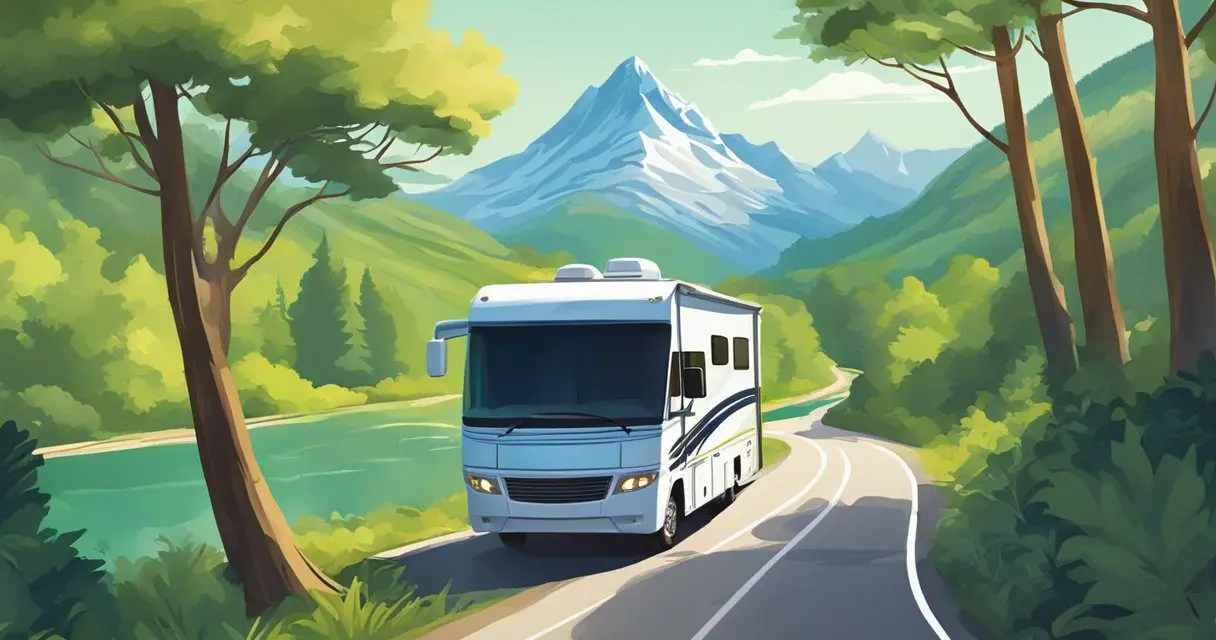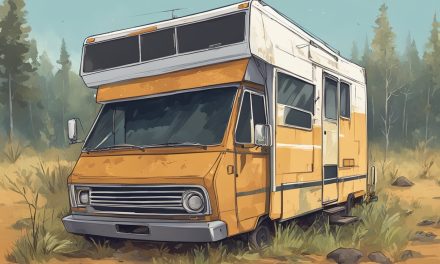Full-time RVing is a lifestyle choice that offers both incredible rewards and significant challenges. Many dream of hitting the open road, exploring new places, and living a life of freedom and adventure. However, the reality of full-time RVing can be quite different from the idyllic vision many have.
A video by “Like There’s No Tomorrow” dives deep into the highs and lows of this lifestyle:
1. The Joys of Exploration
One of the biggest benefits of full-time RVing is the opportunity to explore places you might never have visited otherwise. As Barry and Darlene Nicholson say, “When we lived in Florida, we would have never seen Utah or the California coast.” The ability to travel and see the beauty of the country is unparalleled. Just imagine sitting by a campfire in Zion National Park on a Wednesday, thinking, “This is our life now.” It’s a dream come true for many, but keep in mind, the adventure isn’t always picture-perfect. Sometimes, it’s more like a reality show with unexpected plot twists.
2. Reconnecting with Loved Ones
Traveling full-time in an RV allows you to spend more time with family and friends scattered across the country. Barry mentions, “We get to go back and visit family in Indiana for three weeks at a time, something we never could have done before.” This lifestyle can rekindle old relationships and create new memories. However, be prepared for the occasional awkward dinner where you realize you have nothing in common anymore except for that one embarrassing story from high school.
3. Embracing Minimalism
Downsizing from a house to an RV forces you to adopt a minimalist lifestyle. Darlene shares, “We sold everything and realized we didn’t need most of it.” Living with less can be liberating and save you money. Plus, it means fewer things to clean and maintain. But let’s be honest, sometimes you really miss that one pair of shoes you left behind because you thought you wouldn’t need them. Spoiler: you did.
4. Becoming Mr. or Mrs. Fix-It
RVs are notorious for needing constant maintenance and repairs. Barry candidly admits, “RVs break all the time. I’ve had to become Mr. Fix-It.” Learning to handle these repairs yourself can save you a lot of money and give you a sense of accomplishment. Just be prepared for the occasional meltdown when you realize fixing the water heater is not as easy as the YouTube tutorial made it look.
5. Strengthening Relationships
Living in close quarters and dealing with the stresses of travel can either strengthen or strain your relationships. The Nicholsons note, “Traveling can be stressful, and you have moments where things get heated.” Communication and patience are key to surviving and thriving in this lifestyle. And remember, nothing tests a relationship like trying to back a 44-foot RV into a tight spot while your partner is giving you “helpful” directions.
6. Handling the Unexpected
Life on the road is full of surprises, some good and some bad. Barry’s accident and Darlene’s job loss were major challenges they had to overcome. Barry reflects, “You just handle it. You work past it.” Flexibility and resilience are essential traits for full-time RVers. But let’s face it, sometimes you just have to laugh at the absurdity of it all, like when you realize you drove 30 miles out of the way because you missed the exit for the only gas station within 50 miles.
7. Financial Adjustments
Transitioning to full-time RVing requires significant financial planning. Barry and Darlene emphasize, “We sold our home and most of our possessions to fund our travels.” This lifestyle can be more affordable than traditional living, but unexpected expenses like repairs can add up. Budgeting for these costs is crucial. And remember, when you’re tempted to splurge on that fancy RV gadget, just think of it as a future repair bill waiting to happen.
8. Health and Safety Concerns
Living on the road means you need to be prepared for health and safety issues. Barry’s serious fall from their RV’s patio was a stark reminder of this. “Accidents can happen anytime, anywhere,” he says. It’s important to have good health insurance and a plan for medical emergencies. And maybe, just maybe, avoid using the RV patio as a diving board.
9. Adapting to Different Environments
Full-time RVing means constantly adapting to new environments. Barry and Darlene have experienced everything from the deserts of Arizona to the forests of Oregon. “Each place has its own set of challenges and beauties,” they explain. Learning to adapt quickly is key. Plus, it gives you the perfect excuse to buy that extra warm blanket or portable fan you’ve been eyeing.
10. Building a Community
Despite the transient nature of RV life, building a community is possible. The Nicholsons have met many fellow RVers and formed lasting friendships. “The RV community is incredibly supportive,” Darlene notes. Whether it’s sharing tips, lending a hand with repairs, or just having someone to laugh with about the latest RV mishap, these connections are invaluable. And who knew, you might just find your new best friend at a random campground in the middle of nowhere.







